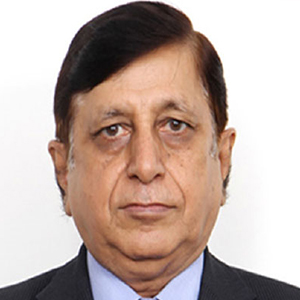Facility Management - A Little known yet a Great Career Choice
 'What next' is the question arises to many students' mind after graduation. They stay in the dilemma of selecting a career path. Many of them do not wish to travel the well-tread path of popular choices. But they have potential, capabilities, and ambition. For them, there are 'roads less traveled' or career options that are not very well known to everyone. These career options have huge potential for successful and rewarding professional years. Facility Management belongs to this category of career options. It is a unique and different branch in higher education of management studies.
'What next' is the question arises to many students' mind after graduation. They stay in the dilemma of selecting a career path. Many of them do not wish to travel the well-tread path of popular choices. But they have potential, capabilities, and ambition. For them, there are 'roads less traveled' or career options that are not very well known to everyone. These career options have huge potential for successful and rewarding professional years. Facility Management belongs to this category of career options. It is a unique and different branch in higher education of management studies.
What is Facility Management?
In general, Facility Management in each of the "Tangible assets that support a company". "Facility" itself suggests that one thing which is designed and established for a purpose. These assets can be a real estate property, building, technical infrastructure, HVAC, lighting, transportation, IT-Service, custodial, grounds, and different user-specific instrumentations and appliances. In a nutshell, Facility Management is the integral managing and execution of housing and other services that contribute to a better performing, flexible, efficient and creative primary processes even if the surrounding of the primary processes (market, social and technological) changes.
Facility Management Operates at Two Levels:
1.Planning and Strategic level: Let's take an example - A hospitality unit is seeking to trim long-term operational costs of staff. This challenge moves to the facilities department. They strategize how to cut costs without lowering the service standards.
2.Operational level: In the same hospitality unit there are facility coordinators. They work on predefined processes to ensure that the defined standards of service and maintenance are adhered to.
The planning and strategy devising is an executive level position. Executives enjoy the benefits and perks of C-Suite employees. The sector offers immense career advancement opportunities where one can work-up the career ladder with just a few years of experience. Facility managers are accountable for the management of services and processes that support the core business of a company. The duties vary with the nature of the organization. They specialize in employing the best business practices to enhance productivity by reducing operating costs.
This is an extensive field with a varied range of responsibilities, which are dependent on the structure and size of the organization. Likely areas of responsibility include:
1.Lease and Contract Management
2.Space Management
3.Utilities and Communications Infrastructure
4.Building, Grounds and Cleaning Maintenance
5.Catering, Canteen, and Vending
6.Health, Security, and Safety
7.Procurement of Infrastructure
Management studies program in Facilities Management is a unique program that prepares students to become Facilities Managers in diverse fields. It is a crucial subset of built environment professionals. A Facility Manager looks after the operation and maintenance of any facility, be it a mall, office, hospital, school or residence.
"Facility Management is a unique and different branch in higher education of management studies and has huge potential for successful and rewarding professional years".
Effective courses in this field are a rich mix of content that is both technical and managerial in nature. A course in Facilities Management is designed to educate & train graduates in any discipline as competent hands-on professional Facilities Managers for all types of complexes so that they are capable of managing all services in their entirety in a global environment complying with international standards.
A Facility Management course teaches students how to work in all types of projects ranging from commercial offices, residential apartments, hotels, hospitals, and institutional building, industrial building, and infrastructure. They gain an advanced level of understanding of the facilities management that is implemented at operational, managerial and strategic levels. The students are prepared to understand the key factors, techniques & methods used in facilities management that contribute to effective & efficient property maintenance & quality of life in the building with a view to enhancing user satisfaction & productivity.
The students learn why and how facilities management requires an intensive business design. They get training for developing a strategy for managing operations of a business and let the people in the business and organization work at their optimal level. They also learn to customize and increase the productivity of the available resources and optimize the cost.
Facilities managers are engaged in all sectors and industries. The diversity of their work is reflected in the wide range of job titles in operations, estates, technical services, and asset or property management. They become the managers of these specific teams.
They could also be responsible for fire and life safety issues, indoor air quality (IAQ), sustainable operations, energy metering, HVAC system maintenance, lighting upgrades, reduction of maintenance costs, or retrofits and renovation.
Whatever might be the job title, the core range of capabilities is about giving a complete overview of the management so that they make informed decisions. Facility managers are accountable for general operations and maintenance, budget and business designing, and typically even life safety and security. It's a field which is less explored, but with increasing urbanization holds immense career potential.

